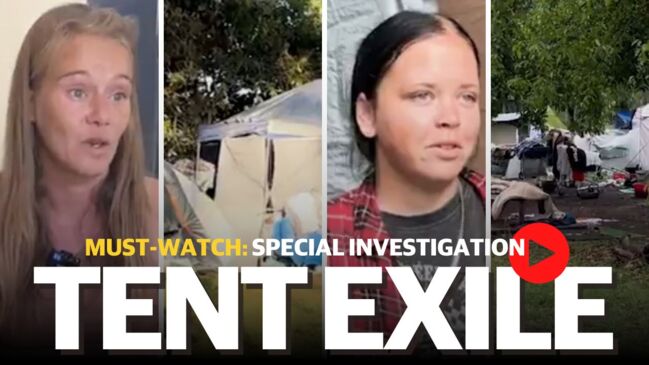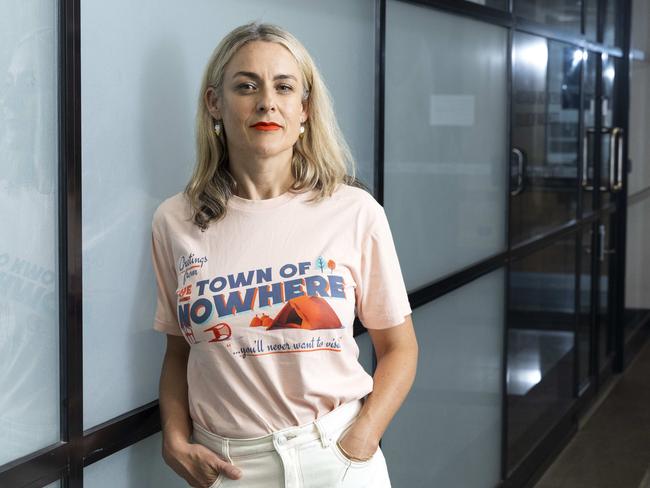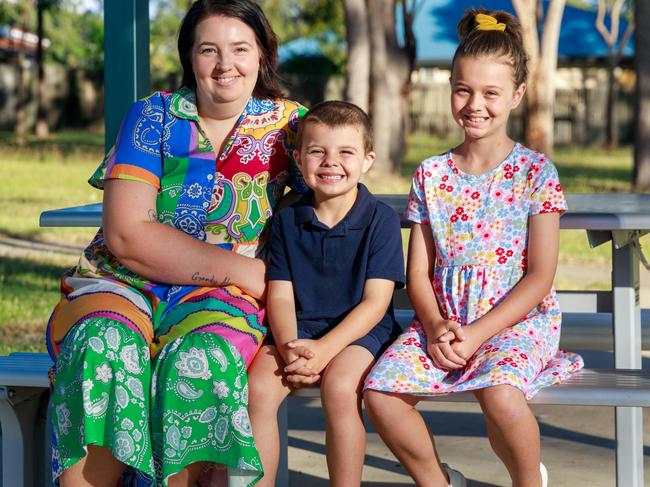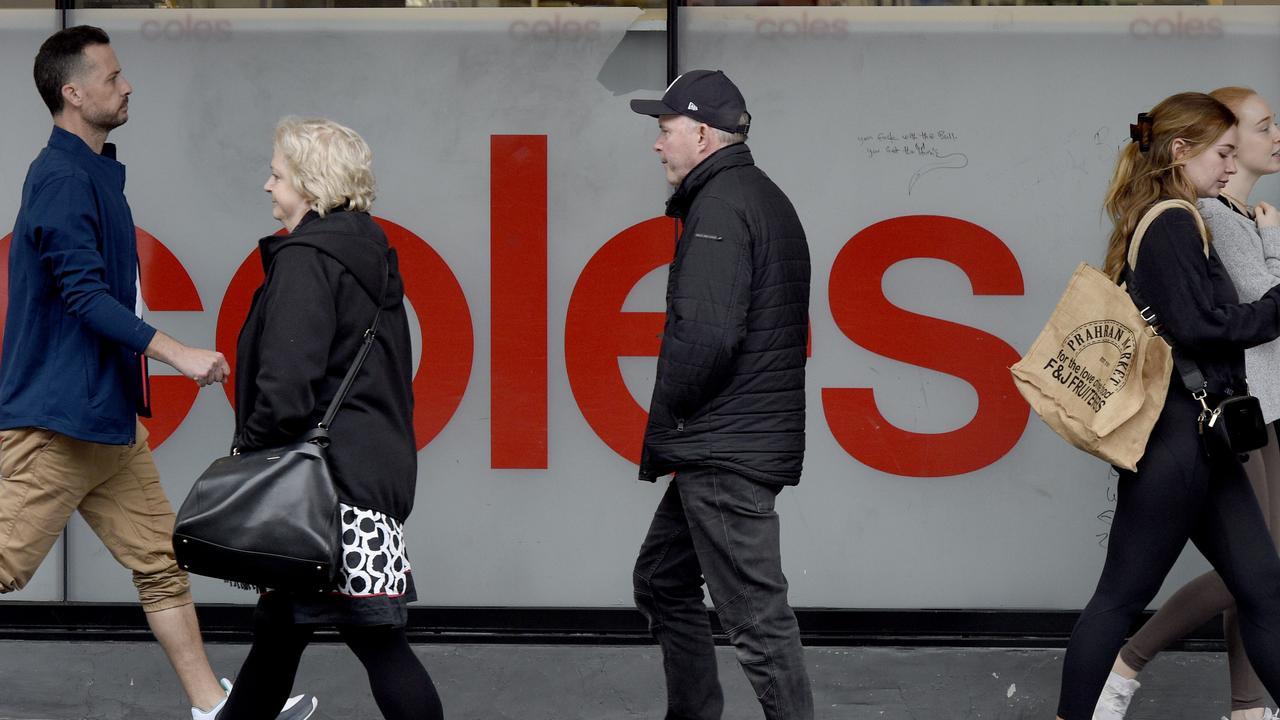Living in crisis hotels: Homeless plight as rentals stay out of reach
Children are being raised in crisis hotel rooms and affordable rental properties are now non-existent as Queensland’s housing emergency shows no signs of easing.

QLD News
Don't miss out on the headlines from QLD News. Followed categories will be added to My News.
Children are being raised in crisis hotel rooms and affordable rental properties are now non-existent as Queensland’s housing emergency shows no signs of easing.
The bleak picture of the housing challenges is laid out in Queensland Council of Social Service’s annual crisis report, seen by The Courier-Mail.
It reveals homelessness services experienced a 34 per cent uplift in caseloads in the past 12 months, compared to the national increase of just 9 per cent.
Across Queensland, just 10 per cent of rental properties are affordable to low-income households, down from 26 per cent in 2017.
QCOSS chief executive Aimee McVeigh said the state’s housing challenge showed “no signs of easing” and warned the one-third of Queenslanders who rent could be out on the street at any moment.
“This housing crisis is unabating,” she said.
“It is continuing to get worse and it’s not just people on low incomes in Queensland who are experiencing this crisis; it’s working families.
“Anyone renting is at risk of homelessness. Prices are going up so fast and there is no other option.”
The QCOSS report revealed between January 2020 and December 2023 median advertised rent climbed 49 per cent in Brisbane compared to a 42 per cent rise across all capital cities.
Ms McVeigh said it was now “virtually impossible” to find an affordable rental – even in regional Queensland.
Premier Steven Miles has released the government’s $3bn Homes for Queenslanders plan, which Ms McVeigh labelled a “nation-leading” approach to boost social housing stock.
She said the 22-year-plan, however, was “yet to have an impact on the ground”.
Mr Miles’s Homes for Queenslanders plan has not been endorsed by the LNP.

Ms McVeigh said the absence of bipartisanship was concerning and demanded Opposition Leader David Crisafulli, who polling indicates will become premier in five months, immediately outline his plans for housing.
“If there is a change of government in October it is absolutely imperative those commitments to increasing social housing are continued by the LNP,” she said.
“We do need to hear detail from the LNP. How many social houses will they deliver for Queensland and by when?”
Mr Crisafulli responded to QCOSS’s demand for details, promising to announce social housing targets and policy as early as next week.
“I intend to use my budget in reply speech to further outline some solutions,” he said.
“One of the solutions that he put forward will be lifting the stamp duty on first home ownership to ease the cost of entry into the market.
“It has stubbornly stuck for the better part of 15 years.”
Mr Crisafulli announced a plan to lift stamp duty in January, but has not revealed what it would be lifted to.
The LNP leader, who polling indicates will become premier, was unable to announce clear targets for social home construction, but promised they would be forthcoming.
“I intend to make housing a really critical part of why I think Queenslanders should change government,” he said.
“I look forward to being held accountable for the targets we set.”
The state government’s spending on hotel rooms for homeless people has soared from $0 in 2015, when Labor was elected, to some $3.6m this year.
Ms McVeigh said it was critical to get people out of tents and into fixed accommodation, but said people should not languish in them.
“These are transitionary crises responses, they’re not long-term solutions,” she said.
“Children are now being raised in hotel rooms across the state.”
The social services sector has praised Mr Miles and Housing Minister Meaghan Scanlon for the “change in focus” on housing, but Ms McVeigh said it followed poor planning.
“This is off decades of inaction by successive governments, including the federal government,” she said.
“Population growth can be projected; these issues have been predicted for years now.”
Australian Bureau of Statistics data last week revealed Queensland’s total building approvals rose 5 per cent in April, but private sector house approvals fell 0.2 per cent.
It comes as new data reveals how Queensland families are budgeting to make ends meet, with eating out and holidays the first things sacrificed.
Families are also trying to cut down their grocery bill by shopping online, undertaking stricter meal planning, and keeping an eye out for specials.
National parenting organisation Triple P surveyed more than 8300 family members across the country, which included state-specific results for the almost 2000 Queensland respondents.

When asked if they were now more likely to cut back on spending, an overwhelming 87 per cent of Queensland families said they had to make savings.
Eating out or takeaway meals were the most commonly sacrificed expense (78 per cent), closely followed by costs associated with events, activities and entertainment (72 per cent).
Holidays have been ditched by 71 per cent of Queensland respondents, while 55 per cent cut back on groceries, and just under half of respondents found savings in their hobbies.
Rockhampton mother-of-two Cathryn Bugden said cost-of-living pressures had had a huge impact on her family’s budget.
“We only go out to eat if it is for a special occasion, for example, a birthday,” she said.
“We have had to adjust the way that we do our grocery shopping – shopping online, keeping an eye out for special deals and discount codes, and meal planning.
“And holidays simply don’t happen.”
Mrs Bugden and her husband both work full-time, but over the past year they have cut expensive extended holidays out of their budgets and instead go on camping and four-wheel-driving holidays for a few days whenever their busy schedules permit.
“The juggle is very real. My husband does shift work. Unfortunately, the kids have become very used to early drop offs and late pick-ups – they don’t know any different,” she said.
Clinical psychologist and Triple P head of training Dr Alan Ralph said the national survey was critical in identifying pressure points for families so appropriate support could be provided.
“The survey revealed that Queensland parents are more likely to cut back a lot on their spending when compared to other states,” he said.
“When parents and carers are under financial pressure from rising living costs and needing to work long hours or multiple jobs to put food on the table, it can lead to difficulties in regulating their emotions, handling problems calmly.
“When families have cut back on things like holidays, activities and eating out, it impacts their ability to connect in a positive and meaningful way with their kids and other family members, takes away important family rituals and can impact their overall wellbeing.”
More Coverage
Originally published as Living in crisis hotels: Homeless plight as rentals stay out of reach




